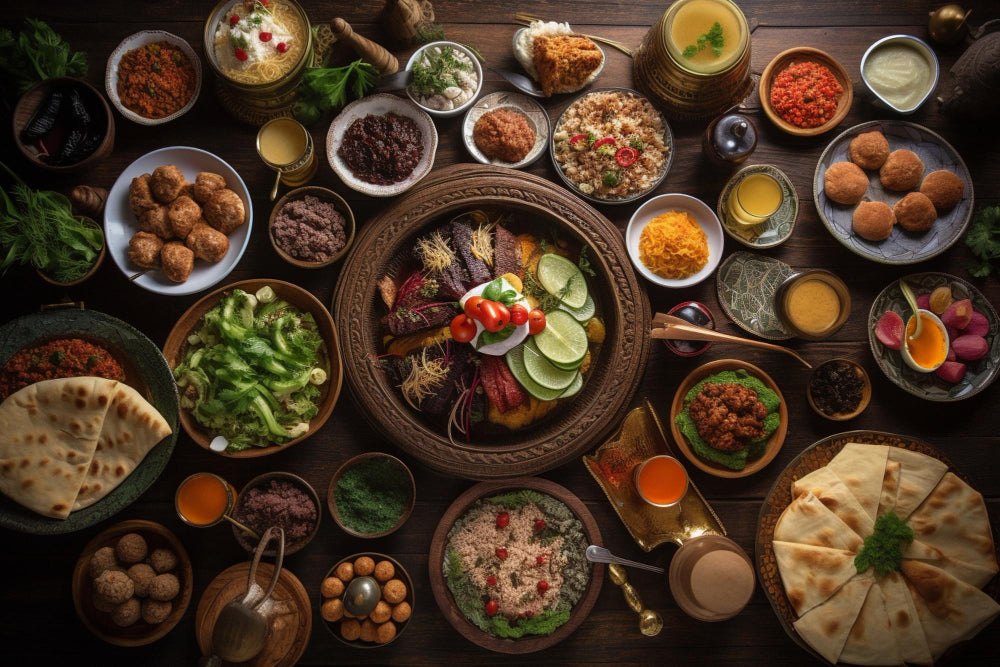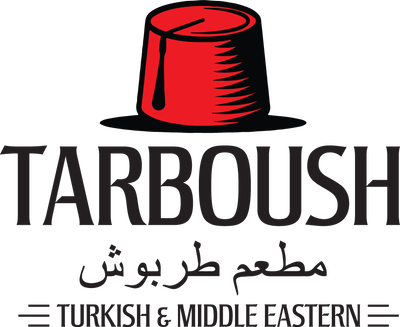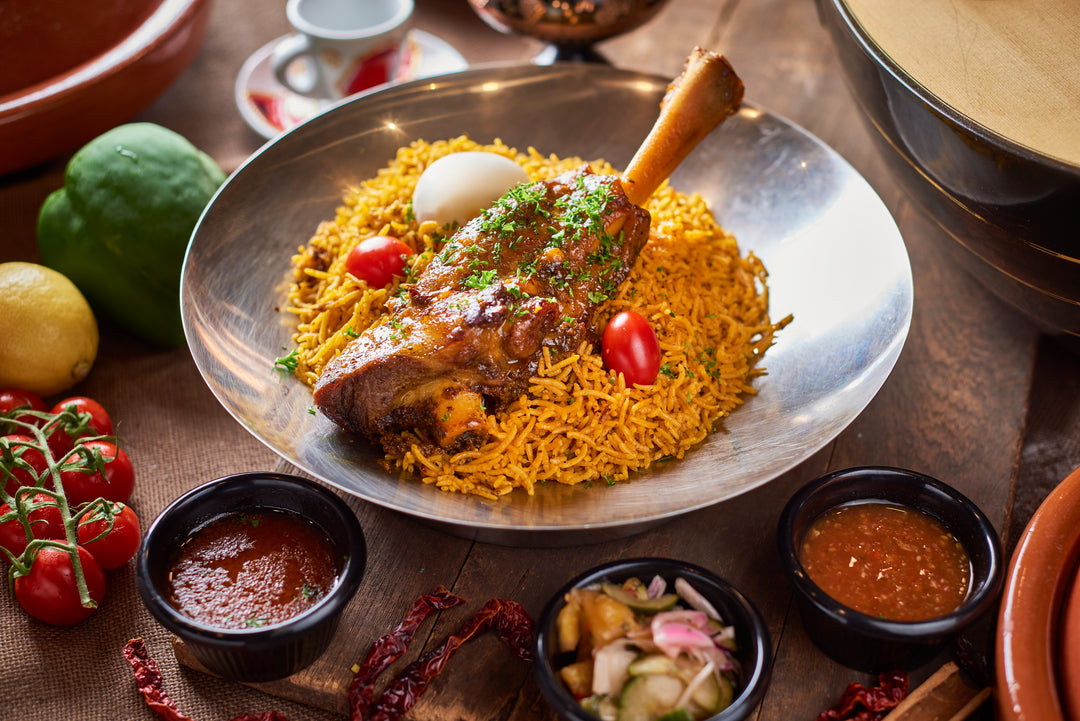The Health Benefits of Middle Eastern Cuisine: Nourishing Your Body and Soul

Middle Eastern cuisine isn't just known for its rich flavors and vibrant colors—it’s also renowned for its health benefits. With an emphasis on fresh vegetables, legumes, lean meats, whole grains, and healthy fats, Middle Eastern food can provide a nutritious and balanced diet.
The Mediterranean Diet: A Global Benchmark for Health
Middle Eastern cuisine is often grouped under the Mediterranean diet, which is consistently rated as one of the healthiest diets in the world. Research shows that the Mediterranean diet can reduce the risk of chronic diseases, such as heart disease, diabetes, and cancer, while promoting longevity. Key principles of this diet, which are also common in Middle Eastern cooking, include:
- High consumption of fruits and vegetables
- Frequent use of whole grains, nuts, and legumes
- Moderate consumption of fish and lean meats
- Healthy fats from olive oil and nuts
Legumes and Grains: A Heart-Healthy Foundation
Middle Eastern cuisine places a strong emphasis on legumes and whole grains, both of which provide essential nutrients that support heart health.
- Chickpeas
- Chickpeas are a major staple in Middle Eastern cuisine, appearing in dishes like hummus, falafel, and stews. They are rich in fiber, protein, and antioxidants, which help reduce cholesterol levels and lower the risk of heart disease.
- Lentils
- Lentils, another common ingredient, are packed with protein, fiber, iron, and B vitamins, supporting cardiovascular health and stabilizing blood sugar levels.
- Whole Grains
- Dishes like tabbouleh (made with bulgur wheat) and pilafs made from whole grains are high in fiber and slow-digesting carbohydrates, which promote digestive health and help regulate blood sugar.
Healthy Fats: The Power of Olive Oil
One of the cornerstones of Middle Eastern cooking is the use of extra virgin olive oil—a source of monounsaturated fats that have been shown to reduce bad cholesterol (LDL) and promote heart health. Olive oil is rich in antioxidants like vitamin E and polyphenols, which have anti-inflammatory properties and support brain function.
Using olive oil in cooking and dressings is a simple way to incorporate healthy fats into your diet, improving both the flavor and nutritional value of your meals.
Antioxidants from Fresh Herbs and Spices
Middle Eastern cuisine uses a wide array of fresh herbs and spices that not only elevate the flavor of dishes but also offer a variety of health benefits:
- Parsley
- Parsley, a common garnish in Middle Eastern dishes, is loaded with vitamin C, vitamin K, and antioxidants, which help boost immunity and reduce inflammation.
- Mint
- Mint is often used to flavor salads, teas, and desserts. It aids digestion, soothes the stomach, and has a refreshing cooling effect on the body.
- Turmeric
- Known for its bright yellow color, turmeric is a potent anti-inflammatory spice that has been used in traditional Middle Eastern medicine for centuries. It supports joint health and helps reduce inflammation in the body.
- Cumin and Coriander
- These spices are not only delicious but also rich in antioxidants. Cumin is known to aid digestion, while coriander has been shown to help regulate blood sugar levels.
Lean Proteins: Maintaining a Healthy Weight
Middle Eastern cuisine features a variety of lean proteins, such as chicken, lamb, and fish, which provide essential amino acids for muscle repair and maintenance without the saturated fats found in red meats.
- Fish
- Fish such as salmon, mackerel, and sardines, which are often grilled or served with rice or vegetables, are rich in omega-3 fatty acids. These healthy fats are essential for brain health, reducing inflammation, and improving cardiovascular function.
- Grilled Meats
- Grilled meats such as kebabs or shawarma are commonly featured in Middle Eastern diets. These meats are typically lean cuts, often marinated in herbs and spices to boost flavor and nutrition.
Low in Processed Foods and Refined Sugars
A defining feature of Middle Eastern cuisine is its reliance on fresh, whole ingredients. This means that most Middle Eastern meals are naturally low in processed foods and refined sugars, which are linked to obesity, diabetes, and other chronic health conditions. Instead, meals are based on vegetables, grains, legumes, and proteins, making them a naturally balanced and nutrient-dense choice.
The Role of Sweets: A Moderate Indulgence
While Middle Eastern cuisine includes a variety of sweet treats, such as baklava and kunafa, these desserts are often enjoyed in moderation and made with natural ingredients like honey, nuts, and dried fruits. These sweets offer antioxidants and healthy fats, particularly when nuts like pistachios and almonds are used, making them a healthier alternative to heavily processed desserts.
The Importance of Hydration: Herbal Teas and Juices
Middle Eastern meals are often paired with refreshing drinks like mint tea or pomegranate juice. Both are naturally hydrating and provide added health benefits. Pomegranate juice is especially rich in antioxidants, which support heart health and combat free radicals. Mint tea, on the other hand, aids digestion and promotes relaxation.
Conclusion: Nourishing Your Body with Middle Eastern Cuisine
Middle Eastern cuisine offers a vibrant and healthy way of eating, with a focus on whole foods, lean proteins, healthy fats, and fresh herbs and spices. Whether you're enjoying a hearty dish like hummus, a fresh tabbouleh salad, or a flavorful grilled kebab, the ingredients in Middle Eastern cuisine are designed to nourish your body while tantalizing your taste buds.
By incorporating Middle Eastern dishes into your diet, you can enjoy a balanced, nutrient-dense approach to eating that supports your overall health and well-being. So why not explore the flavors of the Middle East and discover a new, delicious way to improve your health?









